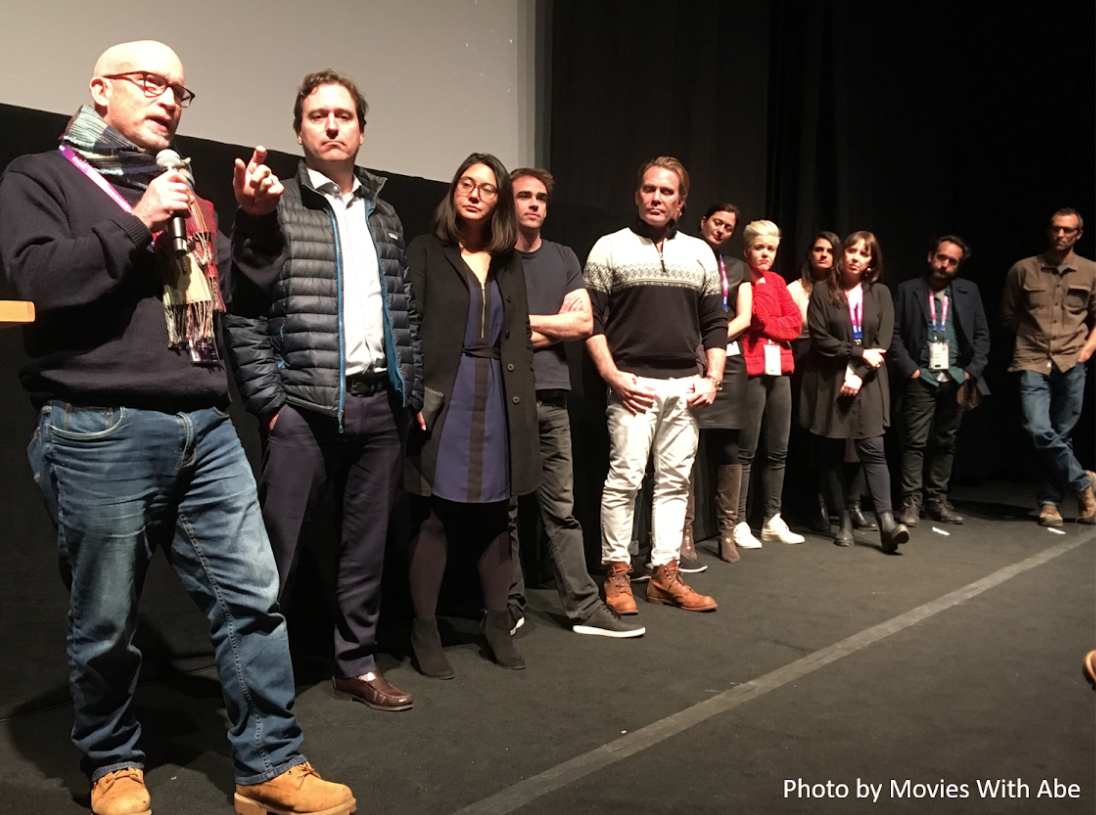The Film Experience has two contributors at Sundance this year, Murtada and Abe. So here's your first of several reports. -Editor
 Alex Gibney discussing his new doc on opening night of Sundance 2019
Alex Gibney discussing his new doc on opening night of Sundance 2019
by Abe Fried-Tanzer
One of the first films to premiere at the 2019 Sundance Film Festival comes from renowned documentarian Alex Gibney, who has previously taken on the Catholic Church, Scientology, Enron, and Lance Armstrong. He won an Oscar for his exposé on torture practices in the disturbing Taxi to the Dark Side (2007). It’s fair, at this point in his filmography, to assume that whatever Gibney wants to spotlight is going to be interesting.
The Inventor: Out for Blood in Silicon Valley tells the recent story of young entrepeneur Elizabeth Holmes and her company Theranos, which launched with the promise of performing over 200 medical tests using just a tiny drop of blood...
Comparing herself to visionaries like Steve Jobs and naming her signature testing box “the Edison” suggests part of Holmes’ ambitious drive and ego. A quote from Yoda on her company’s walls cements her status as someone confident that they'll change the future with the right amount of hard work – even if what they want to do isn’t actually possible.
This riveting documentary charts the rise and fall of Theranos, from Holmes’ early start at just thirty to the company launching a partnership with Walgreens all over Arizona when their product wasn’t even working. Gibney is particularly skilled at utilizing visual aids on screen, illustrating the contrast between the alleged functionality of the blood test and its actual failed processes. The filmmaker draws on viewers’ likely aversion to blood and needles to show how Theranos used that fear to market a utopian solution that could help catch and prevent the effects of diseases before they became irreversible.
 Elizabeth Holmes, "The Inventor"
Elizabeth Holmes, "The Inventor"
Investigating captivating subjects has always been Gibney’s strong suit, and this film, which screens as part of the Documentary Premieres section of Sundance and will be released by HBO this year, is no exception. It feels as if Holmes is actively participating in this takedown of the overconfidence that led her to deceive so many, yet that’s merely of a trick of the editing and storytelling. Most powerful are the interviews with the devastated journalists who first put Theranos on the map, broadcasting its misinformation. They, too, were completely sold by Holmes' masterful exaggeration of an appealing but unfeasible idea.